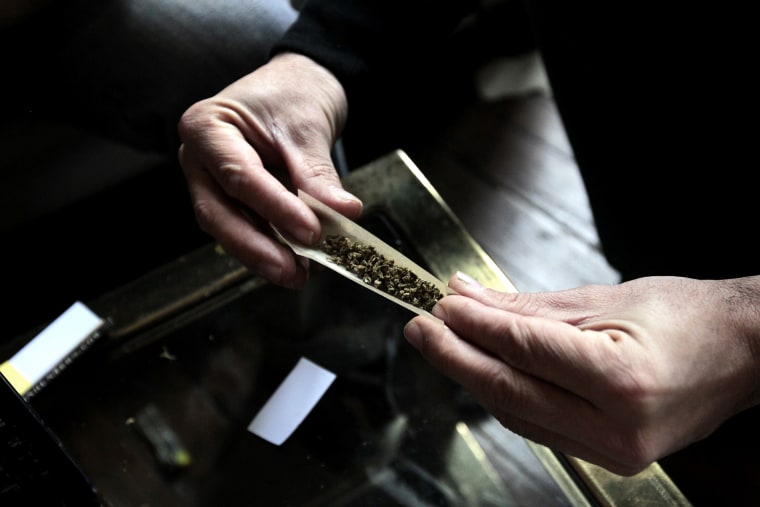A ban on using pot in plain view on Denver front porches appears set to go up in smoke.
The Denver City Council voted on Nov. 26 to ban smoking marijuana on private property if it's done in public view, in places like front porches or balconies. But just as the controversial decision appeared to be a done deal, the city council reversed course by passing an amendment that would nix the ban.
“It’s setting a false expectation up,” Councilman Albus Brooks, who changed his vote to oppose the ban, told NBC affiliate KUSA-TV. "Because we're not going to address this issue. We don't have the resources to do it." Brooks’ change of heart was enough to alter the fate of the ordinance to 7-6 against, blocking the front porch ban from moving forward.
Law enforcement officials were already skeptical of the ban. Upon the initial vote in favor of the ban, Denver's police chief stated that the front-porch ordinance would be law enforcement's lowest priority.
But front-porch smokers are not quite in the clear. A final vote on the amendment to do away with the ban is scheduled for next week.
Marijuana advocates, not surprisingly, oppose the ban. Mason Tvert, communications director for the Marijuana Policy Project, told reporters the porch ban doesn't make sense. "Currently, it is entirely legal for adults to consume alcohol and cigarettes in public. It is irrational to make it illegal for marijuana smokers not to be able to do the same," he said.
On Nov. 6, 2012, Colorado and Washington voted to legalize and regulate the production, sale and use of recreational marijuana for adults 21 and older. The measure passed in Colorado with more than 55% of the vote -- in Denver County, more than two-thirds of voters approved. Since then, Colorado has led the way in creating the country’s first legal marijuana regime through the establishment of a Marijuana Enforcement Division within the state Department of Revenue. In November, Colorado issued the first retail marijuana license to Annie’s Central City Dispensary. More than 100 marijuana stores are expected to open in Colorado on Jan. 1.
Last month, Colorado voted to levee a 25% excise and a 10% sales tax on marijuana in addition to the the pre-existing state sales tax. The first $40 million generated from the new tariffs is earmarked for public school construction and maintenance.
The drug remains illegal at the national level, and no matter how many laws Colorado -- or Denver -- passes, the DEA and the FBI could still arrest anyone for simple marijuana possession. Last month the DEA raided a dozen marijuana growing operations in Colorado in the biggest such police action since Amendment 64 passed.
Marijuana has been illegal in the United States since 1937. For the first time this year two independent polls from Gallup and the Pew Research Center found that a majority of Americans support legalizing marijuana, showing that Colorado is a test case for the future.
